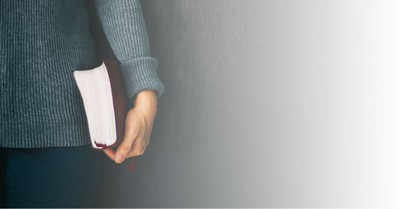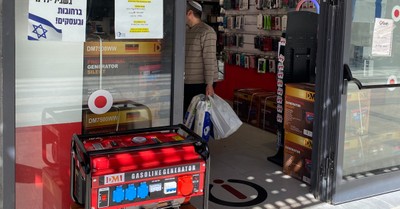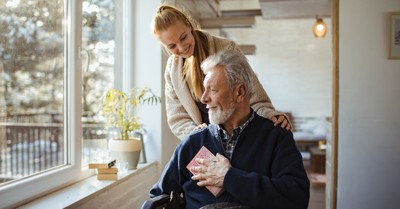On the Eve of the Egyptian Coptic Christmas, A Plea for Muslim-Christian Relations
- Updated Jan 06, 2011
Sahar Taman was awarded the 2010 National Award for Citizen Diplomacy from the U.S. Center for Citizen Diplomacy. Formerly Project Director for the Religion and Society Dialogue Program at the National Peace Foundation, she recently co-founded Journeys to Understanding, a citizen diplomacy organization. I was honored when Ms. Taman contacted me to ask if I'd be willing to use this space as the exclusive medium for her letter below.
On the eve of the Egyptian Coptic Christmas this January 7, I am in pain as I think of the Church of the Two Saints in eastern Alexandria, Egypt, the site of a New Years Day suicide bombing that killed twenty-three and wounded seventy-nine. It was the latest in a recent spate of violent attacks against Christian communities throughout the Middle East. (About ten percent of Egypt's 80 million residents are Coptic Christians. A recent Time magazine article about the Two Saints bombing is "After Bombing, Egypt's Christians Worship and Worry.")
As an Egyptian Muslim who has lived outside Egypt almost all of my life, I read proclamations and condemnations of this bombing from Muslim and Christian leaders throughout Egypt and the United States. Yet, with deep sadness in my heart, I know that such condemnations will not heal the wound that this horrible event has inflicted on Christian-Muslim relations in both countries.
I can only imagine the devastation at the site of the explosion in Alexandria, a city I know well. My mother was born there; both of my parents attended Alexandria University during the 1950s, at the height of the city's grandeur as a Mediterranean city. I have always yearned to know the Egyptian culture I missed being raised in the only Muslim family in a small town in Wisconsin. I have often inquired of my parents about their childhoods, and about their lives in Alexandria during a time when, with all honesty, they say that that sectarian tension between Christians, Muslims and Jews simply did not exist---they were all Egyptians first. (I have heard this harmonious co-existence confirmed by many Egyptian Christians, Jews and Muslims of my parents' generation.) My mother, now in her late seventies, often and affectionately reminisces about her Christian girlhood friends; it's clear how dearly she holds her memory of them.
But I do not know Christian Egypt only through vicarious dialogues with my parents. I know it because, in my quest to foster interfaith understanding, I sought it out for myself, found some of it, and took others on journeys to it, so that they, too, might learn of the rich religious plurality that defines Egypt. Over the years, I have taken Americans of many faith backgrounds to visit the Coptic and Protestant communities in Egypt, where we met with faith leaders and laypersons alike. Twice we attended services at the most famous and historic of the Egyptian Coptic churches, the Hanging Church in Cairo, known more properly as St. Mary's Egyptian Coptic Church, and to Egyptians as "ElKeneesya ElMu'alaqa." Through special permission, we were privileged to attend the Sunday service from which most tourists, restricted to only historical sites, are turned away. Due to the unique nature of our group, which consisted of Muslim, Christian, and Jewish Americans, we were at first met with suspicious hesitancy. The Egyptian Coptic community has a big story to tell of their lives, both past and present---but over time they have become cautious of their Muslim neighbors, and reluctant with outsiders. The Egyptian security apparatus has a long arm in all Egyptians' lives, and activism of any sort, even religious "activism" as benign as trying to foster interfaith dialogue, is squelched. In Egypt personal freedoms, including freedom of association, is very limited---and, sadly, even more so for our Christian brothers and sisters.
So, as in all places where communities are ginger, much is expressed in code or nuance, and one has to develop a sixth sense in order to grasp much of what is being communicated. When the senior priest at the Hanging Church, for instance, was asked by one of our group members about the status of the Egyptian Coptic community, our Egyptian translator, Mohammad, translated his answer with, "It is stable." But I knew that what the Father meant was, "We are permanent." He was referring to his community's current urgent efforts to dissuade Christians from leaving Egypt, which has been the cradle of Christianity for two thousand years. But it wasn't Mohammad's fault that he didn't "get" what the Father had meant to say. Mohammad had never before been in an Egyptian Christian church, and though he has Christian neighbors, had never spoken to them about their religion. Mohammad had joined our interfaith group not just as translator, but as a new devotee to interfaith dialogue. He has since kindled a friendship with his long-time Coptic neighbors.
In an article he recently contributed to a book about the interfaith travel experience, Mohammad wrote: "The wheel of violence in my country is moving and taking both Muslims and Christians into darker regions. The media has its share in creating more division. I can understand that the media would use the terms ‘Muslim' and ‘Christian' citizens in the news if their identities were essential to the story. But was does it mean to read in the newspaper that ‘A Muslim carpenter kills his Christian neighbor in a fight over parking the car,' or ‘A Christian farmer kills his Muslim neighbor in a fight over irrigation rights'? These situations have nothing to do with their religious identities; they are only mad fights that might occur between two hot-blooded people anywhere in the world. But in such manner, the media creates more separation and a larger gap between Muslims and Christians in Egypt, who used to be described as ‘the two elements that form the nation.'"
That harmonious time is certainly now in jeopardy---and for that we have surely more than the media to blame. During one of the masses we attended, for instance, the priests, interspersing English throughout the beautiful ceremony, warned the congregation not to allow any unknown priests into their home. Christians have experienced men dressed as priests knocking on their doors, and then attacking and robbing them. When I hear such stories, I am devastated and desperate. Regardless of whether these incidents are done by horrible individuals misusing the religion of Islam by taking these vile actions in its name, or whether they are common thugs simply looking to steal, as a Muslim I cannot entirely divorce myself from what they have done. I cannot run away from the religious identities of the people who perpetrated these terrible acts. They are Muslims by some name, and so I share in their accountability. Perhaps I am not held accountable by my gracious Christian friends and neighbors; but perhaps in their hearts these inescapable acts of terrorism are also slowly building hurt, suspicion, and anger. How can they not?
What will happen when there are more and more violent incidents? How many will it take before the whole world breaks down into violence? I think of the many Christians who trusted me to take them on the immersion journeys into Egyptian faith and culture, and into other parts of the Arab world where it was often uncomfortable and perhaps even dangerous for them to go. I think of the tough discussions they had with people of other faiths, of the slow but steady progress they all made toward mutual understanding and respect. I remember the mass at the Hanging Church, and how my colleague Vince Isner, a former Christian seminarian, was taken with the singing, with the wonderfully different ways of doing Christian worship. He was overwhelmed with the beauty and history of the Hanging Church, and with the welcome we received from its parishioners and laymen after their initial hesitation. Vince and I recently co-founded Journeys to Understanding, a new NGO dedicated to cultural interfaith journeys to the Muslim world. I wondered if the Two Saints church bombing on New Year's Day would perhaps begin a rift that, over time, as violence takes its toll, would eventually force Vince to question whether or not he can continue interfaith dialogues with Muslims.
When Vince and I were discussing the bombing of Two Saints, he told me of the stinging disappointment he had recently experienced when sharing with a born-again Christian friend of his an audio recording of an ancient liturgy that he had made in the Hanging Church. His friend replied that he didn't want to hear that "Muslim crap." Even when told it was from a Christian mass, he "didn't care," he said, because it "sounded Muslim" to him.
Hanging his head as he related to me this story, Vince sadly said that while there may be only a few who are willing to strap on a belt of explosives, there seem so many who are perfectly willing to wrap themselves in layers of misinformation and hatred in order to attack the beliefs of others.
Vince is still dedicated to the cause of interfaith dialogues;
and many others are responding to the victims of the Alexandria bombing
with love and solidarity, refusing to vilify all Muslims. As long as
there are such people in the world, there is reason to remain committed
to bringing together people of all faiths and values, in order to meet
one another, ask honest questions, share honest doubts, and hand in hand
move toward the kind of lasting peace we can all live with.



















